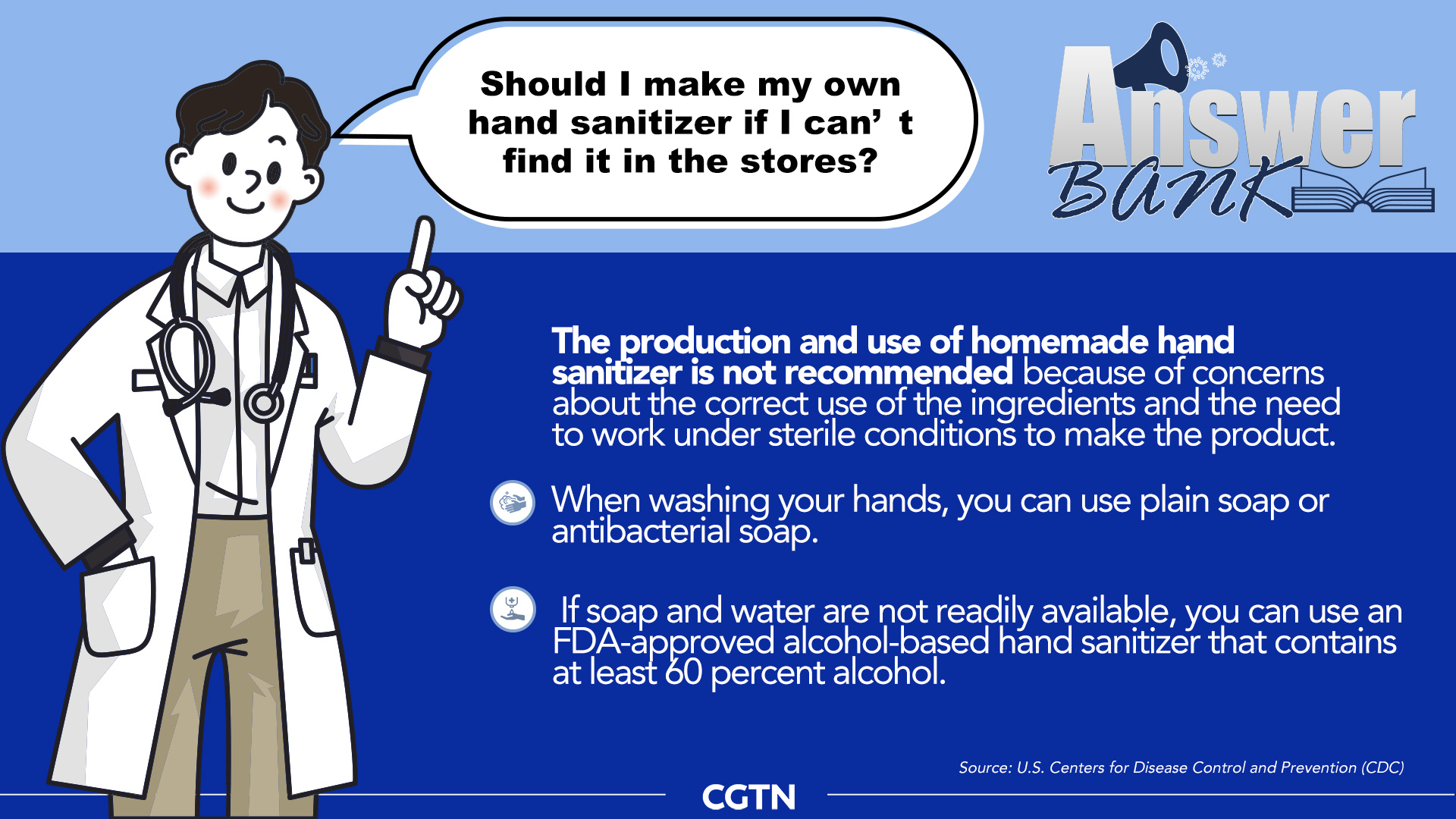
As the coronavirus continues to spread globally, panic buying over COVID-19 pandemic has led to a variety of household products flying off the shelves at your local stores, including hand sanitizers, which many people clearly now view as a necessity.
According to market research from Nielsen, an American research firm, when the first American death from COVID-19 took place during the last week of February, hand sanitizer sales in the U.S. went up by 300 percent compared to the same week a year earlier.
Because of the shortage of hand sanitizers, many stores across the globe are now putting a limit on certain cleaning products per customer. However, when stores run out of hand sanitizers, can we make our own hand sanitizes?
U.S. Centers for Disease Control and Prevention (CDC) does not encourage the production and use of homemade hand sanitizers because of concerns over the correct use of the ingredients and the need to work under sterile conditions to make the product. However, here are some recommendations:
– When washing hands, you can use plain soap or antibacterial soap. Plain soap is as effective as antibacterial soap at removing germs.
– If soap and water are not readily available, you can use an FDA-approved alcohol-based hand sanitizer that contains at least 60 percent alcohol. You can tell if the sanitizer contains at least 60 percent alcohol by looking at the product label.
(Cover image designed by Sa Ren)